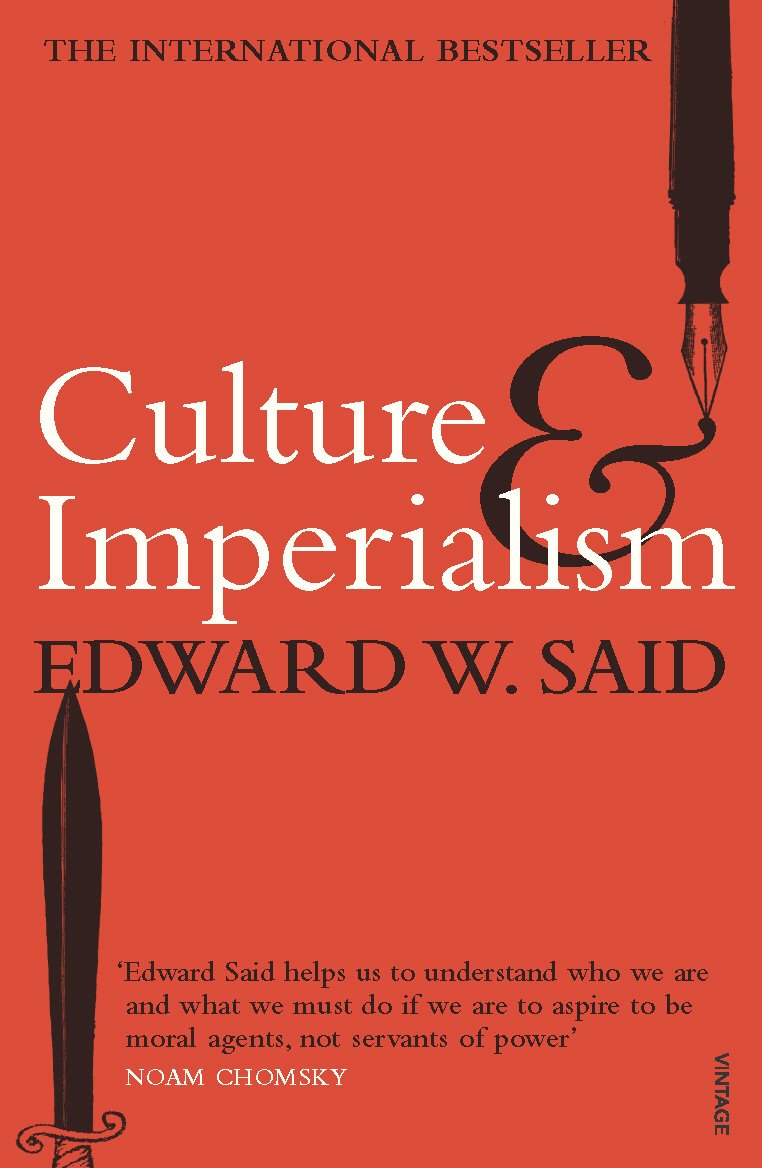About this deal
that much of said's arguments towards the end of the book became deeply uncompelling, especially the halfhearted gestures towards a critique of the university as an institution.
Culture and Imperialism was hailed as long-awaited and seen as a direct successor to his main work, Orientalism. He highlights the importance of examining cultural productions in their historical and political context, and argues that doing so can reveal the complex ways in which culture and power are intertwined. This was an unexpected pleasure, as I'd never read Said before and was fearful of drowning in jargon. No one studying the relations between the metropolitan West and the decolonizing world can ignore Mr. Held up for analysis throughout the book are Rudyard Kipling's Kim, Jane Austen's Mansfield Park and Joseph Conrad's Heart of Darkness.There are strikingly important points that Edward Said makes at the very end of this book that were reminiscent of Amin Maalouf’s “In the Name of Identity, Violence and the Need to Belong. There ought to be no retreat into comfortable notions of the self or the community- for colonizer or colonized. Still, the book is interesting as a social document on the thinking of imperialism and culture of the time. Echoing Fanon on the "Pitfalls of National Consciousness", Said seeks to chart the trajectory of a "liberationist" tendency that went beyond the nationalism that led to the establishment of post-colonial nation states: "There is the possibility of a more generous and pluralistic vision of the world, in which imperialism courses on, as it were, belatedly in different forms.
Before this book I used these terms interchangeably, even after reading the book I don’t think I fully understand how they are different. Like all of Edward Said's writings this book is endlessly repetitive, but if you can wade through the thickets of verbiage you'll find gems of extraordinary insight.A written work is a kind of time capsule that cannot help but reveal the time in which it was written.
To be aware of this fact, it is necessary, according to Said, to look at how colonialists and imperialists employed "culture" to control distant land and peoples. Culture and Imperialism demonstrates that Western imperialism's most effective tools for dominating other cultures have been literary in nature as much as political and economic. To see them as reflective of, and even generative, of attitudes is to make them more interesting, to see them in their totality.He posits that peoples have multiple overlapping identities and shared heritage as compared to the divisiveness required by the imperial project. At the same time, it’s very obvious that Lenin is somehow absent from the book, rather there is a shift of perspective towards thinkers who experienced imperialism from the other side of it. We discretely think and want you to think that we are a superior racial group that is intellectually blessed and would like to help you by making you more like us”. He also explores the ways in which imperialism has been represented in cultural productions, such as novels and films, and argues that these representations have often been used to justify and perpetuate imperialism. The imperial nations have not only the right but the obligation to rule those nations lost in barbarism to civilize them.
However, the graceful writing predominates and even when things get difficult there are still some very valuable concepts being expressed. To read a text contrapuntally is to read it “with a simultaneous awareness both of the metropolitan history that is narrated and of those other histories against which (and together with which) the dominating discourse acts” (51). Said critiques the formation of a monolithic nationalism to replace a former colonial polity, instead drawing attention to the diversity and complexity of the individuals in the territory. But this also means not trying to rule others, not trying to classify them or put them in hierarchies, above all, not constantly reiterating how “our” culture or country is number one (or not number one, for that matter). He refuses works that just promotes the nationalism of the oppressed, to the theory of the absolute evil of the native the theory of the absolute evil of the settler replies.Reading this you would think that Said has no idea that the phenomenon of Imperialism has occurred all over the world in every culture throughout history. It lays the foundation for how the West has justified its relentlessly violent relationship to Arab countries (other than those it can exploit such as Saudi Arabia) and how a nativist, racist like Drumpf could become President on the heels of Obama. He thus can argue that imperialism has survived the disappearance of the colonial empires and devotes the last section of Culture to its workings in the United States since World War II. Despite being a challenging read, I would recommend this book to others curious about why we all need to speak english to exist in this world. Said covers a broad area but only from a narrow perspective - that of the West being bad and non-Western cultures being its victims and morally superior.
Related:
 Great Deal
Great Deal 